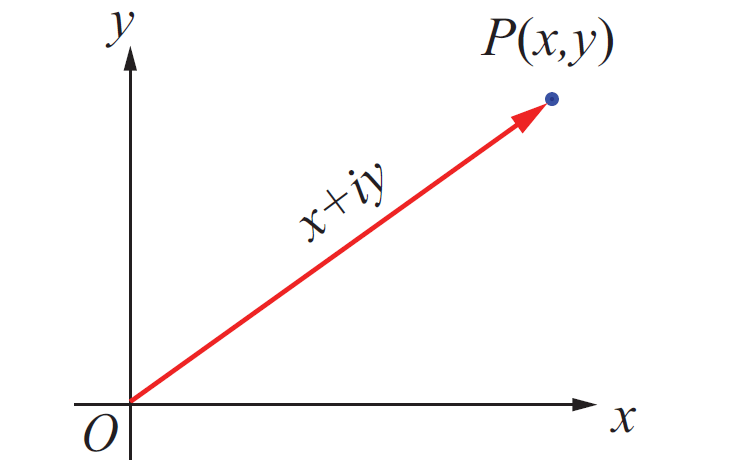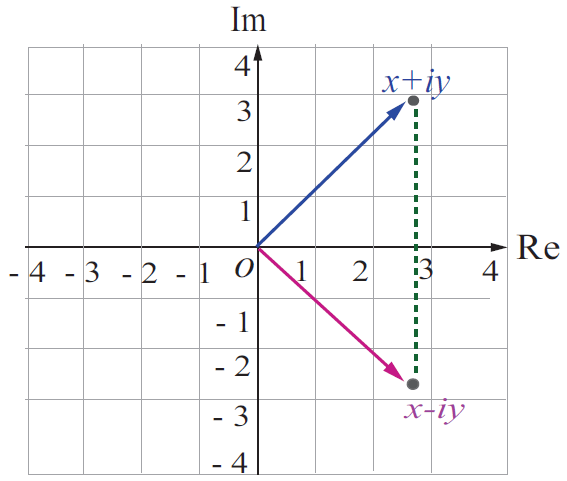FIND ZEROES OF THE FOLLOWING QUADRATIC POLYNOMIAL AND VERIFY
Find the zeroes of the following quadratic polynomials and verify the basic relationship between the zeroes and coefficients.
(i) x2–2x–8 (ii) 4x2–4x+1
(iii) 6x2–7x-3 (iv) 4x2+8x
(v) x2 - 15
Detailed Answer Key
(i) Answer :
Let p(x) = x2–2x–8
To find zeroes, we can equate p(x) to 0.
So, p(x) = 0
By factoring, we get
(x-4) (x+2) = 0
Verifying whether they are zeroes :
|
x-4 = 0 x = 4 p(4) = (4-4) (4+2) p(4) = 0 |
x+2 = 0 x = -2 p(-2) = (-2-4) (-2+2) p(-2) = 0 |
So, 4 and -2 are zeroes of the given quadratic polynomial.
So, α = 4 and β = -2
By comparing the quadratic equation with
ax2+bx+c = 0
a = 1, b = 2 and c = -8
Verifying the relationship :
The sum of the zeroes (α+β) :
4-2 = -b/a
2 = -(-2)/1
2 = 2
The product of the zeroes αβ :
4(-2) = c/a
-8 = -8/1
-8 = -8
Thus, the basic relationship verified.
(ii) Answer :
Let p(x) = 4x2–4x+1
To find zeroes, we can equate p(x) to 0.
So, p(x) = 0
By factoring, we get
(2x-1) (2x-1) = 0
Verifying whether they are zeroes :
2x-1 = 0
x = 1/2
p(1/2) = (2(1/2)-1) (2(1/2)-1)
p(1/2) = 0
So, 1/2 is zero of the given quadratic polynomial.
So, α = 1/2 and β = 1/2
By comparing the quadratic equation with
ax2+bx+c = 0
a = 4, b = -4 and c = 1
Verifying the relationship :
The sum of the zeroes (α+β) :
1/2 + 1/2 = 4/4
1 = 1
The product of the zeroes αβ :
1/2(1/2) = 1/4
1/4 = 1/4
Thus, the basic relationship verified.
(iii) Answer :
Let p(x) = 6x2–7x-3
To find zeroes, we can equate p(x) to 0.
So, p(x) = 0
By factoring, we get
(2x-3) (3x+1) = 0
Verifying whether they are zeroes :
|
2x-3 = 0 x = 3/2 p(3/2) = (2x-3) (3x+1) p(3/2) = (2(3/2)-3) (3(3/2)+1) p(3/2) = 0 |
3x+1 = 0 x = -1/3 p(-1/3) = (2(-1/3)-3) (3(-1/3)+1) p(-1/3) = 0 |
So, 3/2 and -1/3 are zeroes of the given quadratic polynomial.
So, α = 3/2 and β = -1/3
By comparing the quadratic equation with
ax2+bx+c = 0
a = 6, b = -7 and c = -3
Verifying the relationship :
The sum of the zeroes (α+β) :
3/2 - 1/3 = 7/6
(9-2)/6 = 7/6
7/6 = 7/6
The product of the zeroes αβ :
(3/2)(-1/3) = -3/6
-1/2 = -1/2
Thus, the basic relationship verified.
(iv) Answer :
Let p(x) = 4x2+8x
To find zeroes, we can equate p(x) to 0.
So, p(x) = 0
By factoring, we get
4x(x+2) = 0
Verifying whether they are zeroes :
|
4x = 0 x = 0 p(0) = 4(0) (0+2) p(0) = 0 |
x+2 = 0 x = -2 p(-2) = 4(-2)(-2+2) p(0) = 0 |
So, 0 and -2 are zeroes of the given quadratic polynomial.
So, α = 0 and β = -2
By comparing the quadratic equation with
ax2+bx+c = 0
a = 4, b = 8 and c = 0
Verifying the relationship :
The sum of the zeroes (α+β) :
0-2 = -8/4
-2 = -2
The product of the zeroes αβ :
(0)(-2) = 0/4
0 = 0
Thus, the basic relationship verified.
(v) Answer :
Let p(x) = x2–15
To find zeroes, we can equate p(x) to 0.
So, p(x) = 0
By factoring, we get
(x+√15)(x-√15) = 0
Verifying whether they are zeroes :
|
x+√15 = 0 x = -√15 p(-√15) = (-√15+√15) (-√15-√15) p(-√15) = 0 |
x-√15 = 0 x = √15 p(√15) = (√15+√15) (√15-√15) p(√15) = 0 |
So, -√15 and √15 are zeroes of the given quadratic polynomial.
So, α = -√15 and β = √15
By comparing the quadratic equation with
ax2+bx+c = 0
a = 1, b = 0 and c = -15
Verifying the relationship :
The sum of the zeroes (α+β) :
-√15 + √15 = 0/1
0 = 0
The product of the zeroes αβ :
(-√15)(√15) = -15
-15 = -15
Thus, the basic relationship verified.

Apart from the stuff given in this section, if you need any other stuff in math, please use our google custom search here.
Kindly mail your feedback to v4formath@gmail.com
We always appreciate your feedback.
©All rights reserved. onlinemath4all.com
Recent Articles
-
First Fundamental Theorem of Calculus - Part 1
Apr 17, 24 11:27 PM
First Fundamental Theorem of Calculus - Part 1 -
Polar Form of a Complex Number
Apr 16, 24 09:28 AM
Polar Form of a Complex Number -
Conjugate of a Complex Number
Apr 15, 24 11:17 PM
Conjugate of a Complex Number

